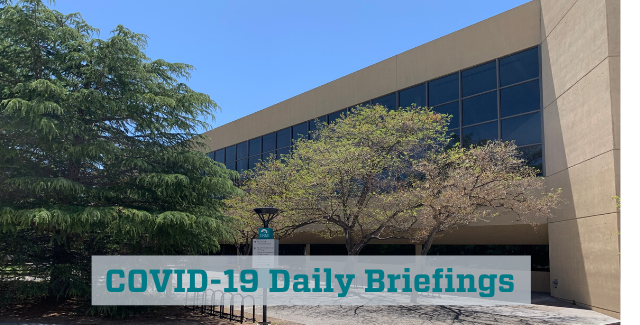Document Type
Brief
Publication Date
4-19-2020
Abstract
Executive Summary:
NM highlights. Census under-counting. Zip code cases. NM Volunteers needed. Jury trials suspended. Tracking NM cases. Tribal susceptibility & response. Shortages: Legal guidance. Life insurance pause. US case geography. Korean 2.1% reinfection. International policy review. Research disruption. Neuropsychiatric sequelae looming. Case undercounting. Antibody test utility. Air travel infection. FDA serologic test guidance. Household transmission. Human behavior & public health. Military leadership principles. Systematic review quality. Clozapine consensus. Guidelines for: nasopharyngeal swabs, tracheostomy, intubation, extubation, managing laryngectomy patients, stroke thrombectomy, cardiac surgery, neuroanesthesia, coagulopathy management, ECMO, radiology safety, nuclear medicine, gastroenterology, and grief in palliative care. Hydroxychloroquine and antivirals fail to show benefit. Review on drug repurposing. Viral load symptom onset. Lymphocytes & case severity. Reactive lymphocytes. Saliva testing. Blood test Dx alternative. RT-PCR + clinical suspicion. Sperm tests negative. Thrombocytopenia mechanisms. Smell dysfunction. No rhesus macaque reinfection. Respiratory center damage.
Recommended Citation
Lambert, Christophe G.; Shawn Stoicu; Ingrid Hendrix; Anastasiya Nestsiarovich; Praveen Kumar; Nicolas Lauve; Rachel D. King; Samuel Anyona; Evans Raballah; Cristian Bologa; Alexendra Yingling; Orrin Myers; Andrew S. Rowland; and Douglas J. Perkins. "2020-04-19 DAILY UNM GLOBAL HEALTH COVID-19 BRIEFING." (2020). https://digitalrepository.unm.edu/hsc_covid19_briefings/14


Comments
Disclaimer: The UNM Global Health COVID-19 Briefing is provided as a public service. Sources include not only peer-reviewed literature, but also preliminary research manuscripts that have not been peer reviewed along with lay news media reports. The peer-review process often results in manuscript improvement, with corrections made for errors and unsubstantiated conclusions being corrected. Furthermore, many headlines and summaries in the briefing are written by student volunteers and others who may lack subject matter expertise in this rapidly evolving field. As such, the headlines and summaries should not be regarded as conclusive. Instead, readers are encouraged to use the briefing to identify areas of interest and then use the embedded links to read and critically evaluate the primary sources.